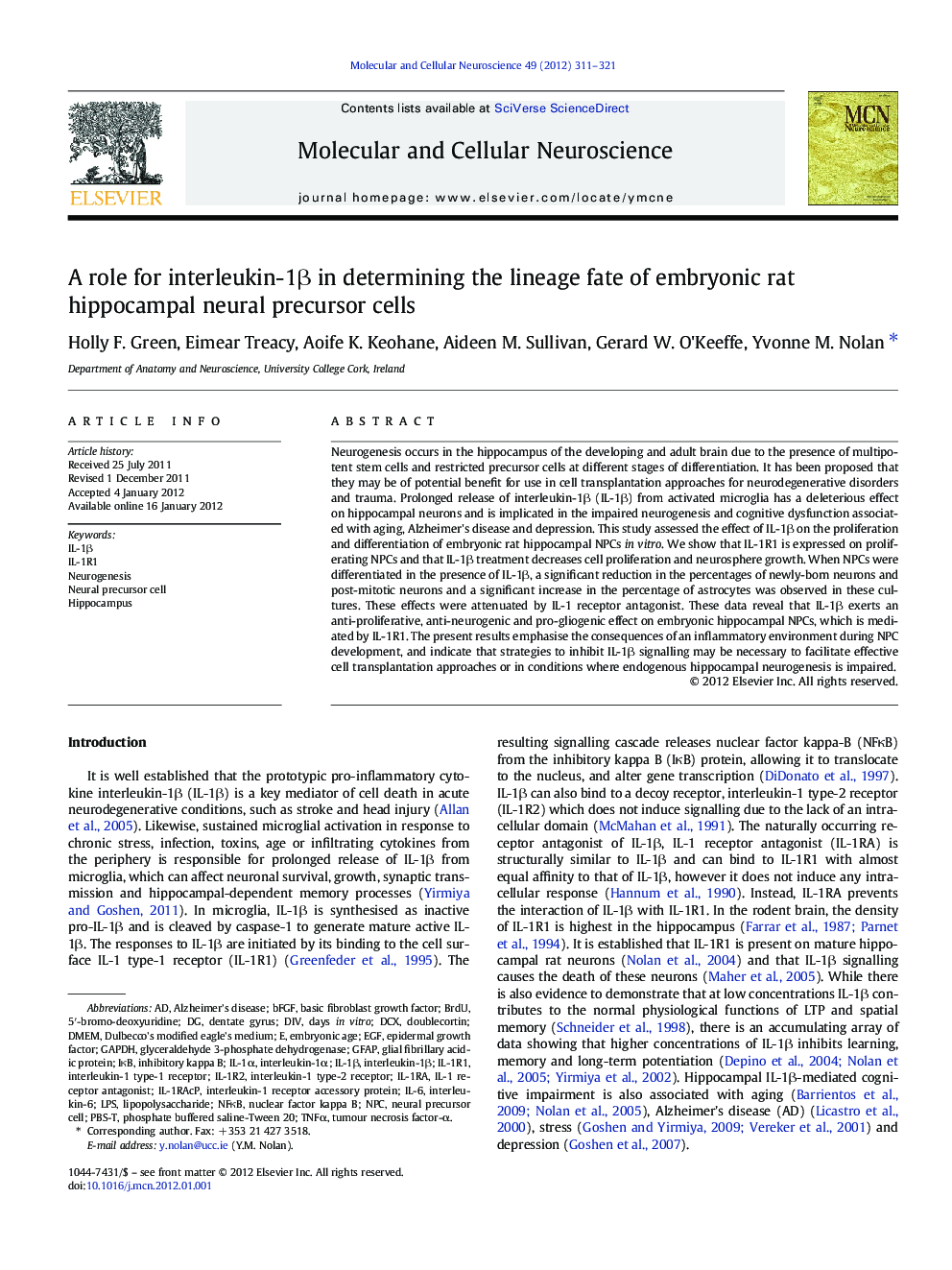| Article ID | Journal | Published Year | Pages | File Type |
|---|---|---|---|---|
| 10956583 | Molecular and Cellular Neuroscience | 2012 | 11 Pages |
Abstract
Neurogenesis occurs in the hippocampus of the developing and adult brain due to the presence of multipotent stem cells and restricted precursor cells at different stages of differentiation. It has been proposed that they may be of potential benefit for use in cell transplantation approaches for neurodegenerative disorders and trauma. Prolonged release of interleukin-1β (IL-1β) from activated microglia has a deleterious effect on hippocampal neurons and is implicated in the impaired neurogenesis and cognitive dysfunction associated with aging, Alzheimer's disease and depression. This study assessed the effect of IL-1β on the proliferation and differentiation of embryonic rat hippocampal NPCs in vitro. We show that IL-1R1 is expressed on proliferating NPCs and that IL-1β treatment decreases cell proliferation and neurosphere growth. When NPCs were differentiated in the presence of IL-1β, a significant reduction in the percentages of newly-born neurons and post-mitotic neurons and a significant increase in the percentage of astrocytes was observed in these cultures. These effects were attenuated by IL-1 receptor antagonist. These data reveal that IL-1β exerts an anti-proliferative, anti-neurogenic and pro-gliogenic effect on embryonic hippocampal NPCs, which is mediated by IL-1R1. The present results emphasise the consequences of an inflammatory environment during NPC development, and indicate that strategies to inhibit IL-1β signalling may be necessary to facilitate effective cell transplantation approaches or in conditions where endogenous hippocampal neurogenesis is impaired.
Keywords
IκBinterleukin-1 receptor accessory proteininhibitory kappa BIL-1R2IL-1RAcPIL-1αNPCPBS-TIL-1RAIL-1R1DcxEGFIL-1βGAPDHbFGFTNFαLPSIL-6DMEMGFAPDulbecco's modified Eagle's mediumNFκBIL-1 receptor antagonistinterleukin-6Interleukin-1αInterleukin-1βBrdUAlzheimer's diseasetumour necrosis factor-αdoublecortinDIVdays in vitroNeural precursor cellembryonic agedentate gyrusepidermal growth factorbasic fibroblast growth factornuclear factor kappa BlipopolysaccharideNeurogenesisHippocampusGlial fibrillary acidic proteinglyceraldehyde 3-phosphate dehydrogenase
Related Topics
Life Sciences
Biochemistry, Genetics and Molecular Biology
Cell Biology
Authors
Holly F. Green, Eimear Treacy, Aoife K. Keohane, Aideen M. Sullivan, Gerard W. O'Keeffe, Yvonne M. Nolan,
